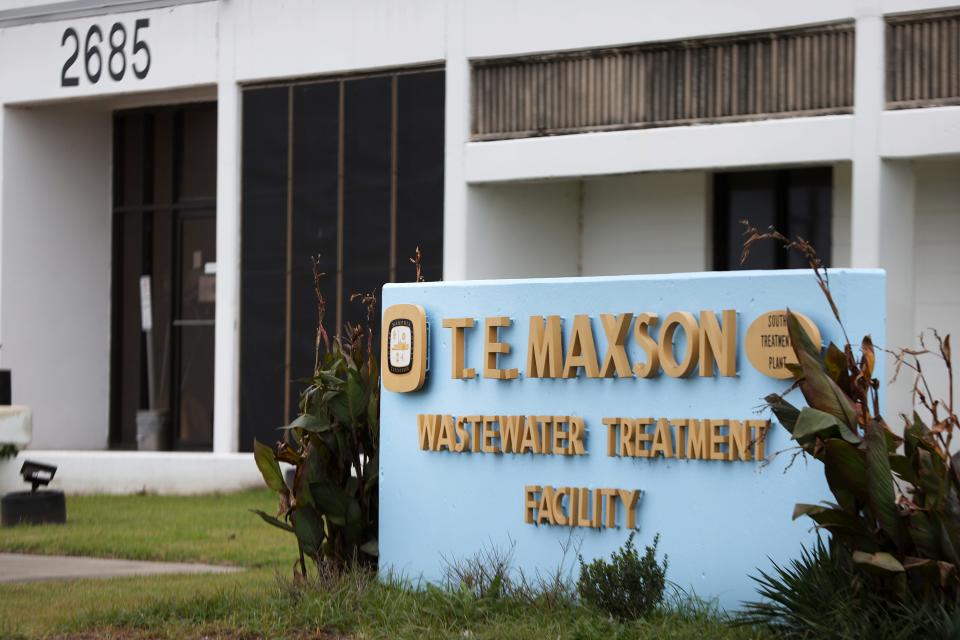DeSoto, Memphis sewage agreement to end in September
A judge has ruled in a summary judgment that the contentious, 40-plus-year agreement keeping portions of DeSoto County, Horn Lake and Southaven on Memphis' sewer system is set to end Sept 22, 2023.
"In sum, considering the four corners of the 1975 Agreement, the 1983 Agreement, and the overall context in which those Agreements were made, the Court concludes that the parties' intent, as expressed in the unambiguous language of the Agreements, was for the 1975 Agreement to be for a limited duration -- 40 years -- which was subsequently extended by the 1983 Agreement," reads the summary judgment, which was issued on March 30 by U.S. District Court Judge Mark S. Norris. "Therefore, the 1975 Agreement, as extended by the 1983 Agreement, ends by its terms on September 22, 2023."
Memphis has asserted since 2018 that it will not renew the contract with the sewer district and asked a federal judge to say definitively that it can end the contract. The sewer district, an entity that serves Southaven, Horn Lake and other parts of DeSoto County, contended Memphis can’t leave the north Mississippi suburbs without service and has repeatedly said that the city of Memphis has refused to negotiate.
Previous coverage: Memphis, DeSoto again entering mediation in fight over sewer system
In December 2019, the two parties each filed lawsuits. In December and January of 2022, the two parties entered mediation, which ended in an impasse. The second try at mediation took place on Sept. 21, 2022, with retired state Supreme Court Justice Janice M. Holder, and again ended at an impasse.
The summary judgment grants, in part, the City of Memphis' Motion for Summary Judgement filed in 2021, but stops short of agreeing that the City "has no obligation" and "cannot be compelled" to continue treating the sewer district's wastewater after Sept. 22.

The judgment also points to the risk that if the City of Memphis refuses to treat the sewage district's wastewater it could result in a sewage outflow near the Mississippi-Tennessee state line, possibly contaiminating soil, groundwater and surface water.
"Of course, this is mere speculation, but it illustrates why the relief requested in the Complaint for Declaratory Judgment is overly broad and inappropriate for resolution on summary judgment," the judgment reads.
How long will it take for DeSoto to remove its users from Memphis' system?
A bench trial for the case is set for April 10. In a proposed pretrial order, the City of Memphis argues that the DeSoto sewage district has "no basis to argue that the parties' wastewater treatment agreement extend beyond September 22, 2023" and that the sewage district should be placed under an expedited time frame of six to seven years, at most, to remove its users from the City's wastewater system.
The sewage district argues that it has "undertaken in earnest" to get the funding needed to expand DeSoto County Regional Utility Authority (DCRUA)'s existing Johnson Creek wastewater treatment facility and that, including the time necessary to obtain funding, the process could take as few as eight years or up to 13. The DeSoto sewage district proposes that it should be given a series of milestones rather than a hard deadline, proposing a plan that would take 10 years from the date of the Court's order.
During the April 2022 status meeting, attorneys for DeSoto stated that they are lining up $40 million to move DeSoto to its own system. The cost of the project is estimated to be $230 million. The sewage district's proposal would set a 24-month timeline from the date of the Court's ruling for the sewage district to obtain sufficient funding to begin the next phases of the project, believing it could obtain "as much public funding from the State of Mississippi and/or the federal government as possible within 24 months" and complete a bond sale for any remaining funds.
How much will DeSoto pay the City of Memphis for continued treatment?
The City of Memphis contends in the proposed pretrial order that the sewage district should be required to pay a rate equal to the City's other wholesale customers, such as Collierville, Lakeland and Millington, who pay $3.32 per 1,000 gallons, versus the $0.96 per 1,000 gallons the DeSoto sewage district currently pays.
The sewage district said in the order that the City of Memphis should continue to calculate the wastewater treatment rate for the sewage district the same way it has for 43 years. The sewage district said this is, in part, to "facilitate its effective disconnection from the City's wastewater system by ensuring its ability to pay for the bonds on the necessary DCRUA facility expansion project."
Gina Butkovich covers DeSoto County, storytelling and general news. She can be reached at 901/232-6714.
This article originally appeared on Memphis Commercial Appeal: DeSoto, Memphis sewage agreement to end in September

